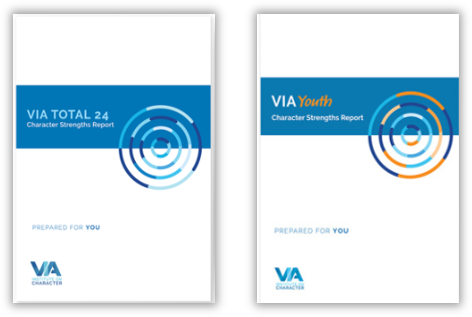Character strengths are universal, positive qualities found in all human beings, from children to adults. They are personality traits like love, fairness, bravery and hope. Research shows people who understand and apply their character strengths are happier, more confident and more resilient.
3 Strategies to Practice Strengths-Based Parenting
If you’re a parent, exploring your strengths and nurturing your child’s strengths is one of the greatest gifts you can give them. Just as you want to feel seen and appreciated for the good you bring to the world, so does your child. Focusing on character strengths gives you a pathway to celebrate what’s best in each of you.
It’s never too early or too late to build a relationship around strengths. Beginning at a young age, children reveal their highest strengths in what they say, how they feel and the activities they enjoy. Resources like the VIA Survey (adult and youth versions), Total 24 Report and Youth Report can help you identify strengths—and show you how to activate strengths in you and your child.
In combination with your personalized reports, a few simple strategies can support you in creating a more strengths-based family culture in daily life.
1. See and Celebrate Strengths in Action
To see a strength, you need to know what it “looks” like. Luckily, your normal, everyday behaviors are full of character strengths in action.
As a parent, getting your kids awake, fed and off to school each morning calls upon strengths such as love, prudence and perseverance. You deserve credit for this! Every day you find the right combination of strengths to keep your routine running (relatively) smoothly.
Additionally, when your child asks multiple questions about the dinner you prepared, commend their curiosity. As they try new foods, acknowledge their bravery. Look for moments throughout the day when they shine, and verbally acknowledge the strengths that are playing a role.
2. Magnify Similarities and Synergies
Shared character strengths are great connectors. As you and your child review your Total 24 Report and Youth Report, highlight the strengths at the top that you have in common or work well in combination.
Then, find something you both enjoy that activates the natural strengths you share. Learn chess (love of learning), watch a sporting event (teamwork), or cuddle with a book (love).
Transitions, such as back-to-school or navigating a challenge, can be the perfect time to focus on the qualities that make you feel authentic and confident, too.
3. Explore Your Unique Strengths
Just as shared strengths provide opportunities for connecting, unique strengths provide opportunities for learning. Explore the strengths that are high for your child, but don’t come as easily to you. To help with this, your child’s Youth Report includes a Parent Guide with tips and conversation starters around top character strengths.
Maybe their love of nature will inspire your appreciation of beauty or their eclectic outfit will spark your own creativity. Let them lead you when the situation activates one of their unique strengths.
Conversely, be aware of potential “hot button” situations—when a strength is high for you, but not for your child. For example, a parent high in perseverance might feel frustrated when their child quits a task. Consider how your other strengths, such as love and perspective, can help you manage the situation.
.png)
Strengthening the Family Dynamic
Exploring character strengths as a family creates an environment where everyone is seen and appreciated for their best qualities. Relationships thrive when you look for the good in each other. And the benefits don’t stop there.
Activating strengths generates a positive upward spiral. It can reduce stress, boost happiness, and increase academic and professional achievement.
Ultimately, as a strengths-based parent, you’re not just building a happy home life, you’re teaching your child skills for a lifetime of well-being.


